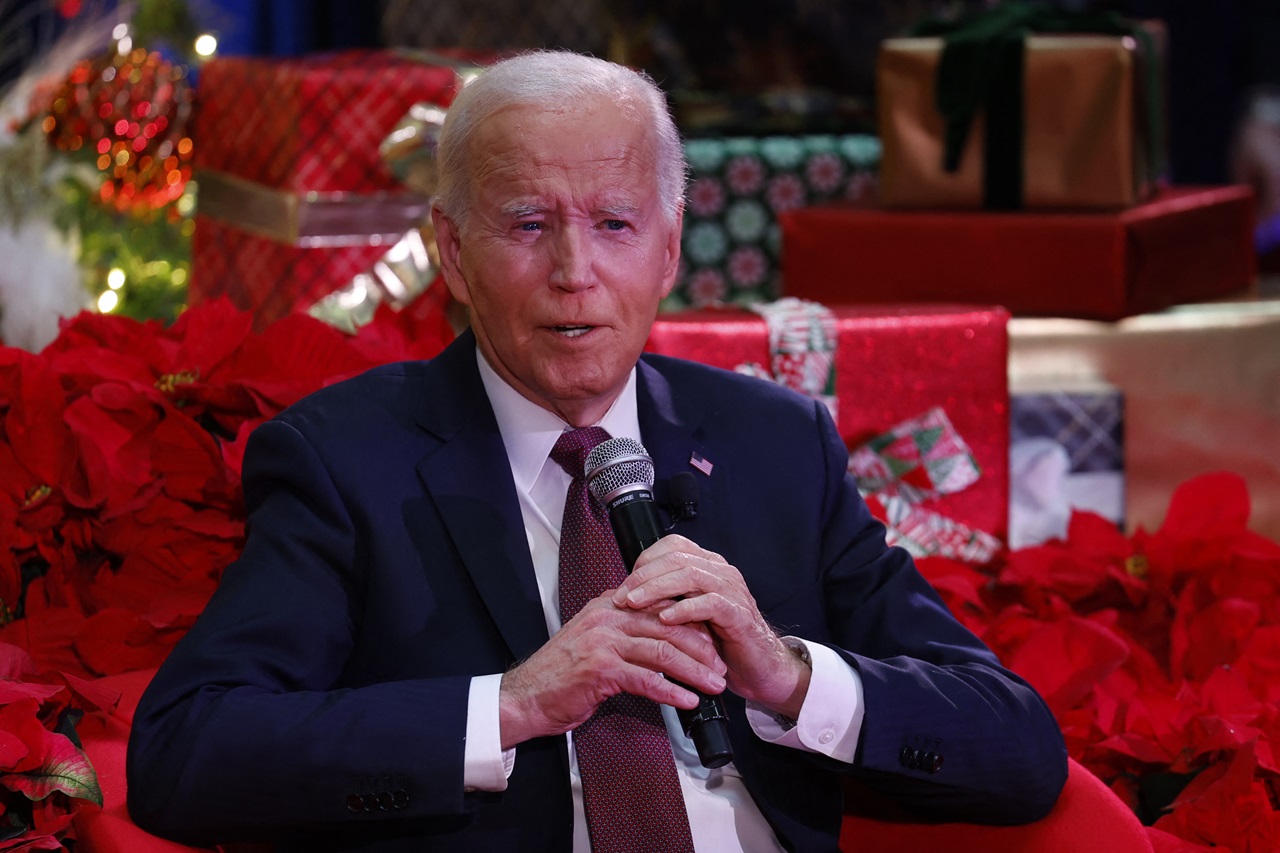
The New Afro-Latina Leader of Philadelphia's Office of Immigrant Affairs
Amy Eusebio is a proud Afro-Latina, ready to carry the banner of Philly’s Office of Immigrant Affairs into the future.
Amy Eusebio’s story starts approximately 91 miles north of Philadelphia, in Jersey City, New Jersey. Her parents emigrated there from the Dominican Republic.
“My mother is the youngest of 10 kids and my father is the youngest of 16 kids. Very much a Dominican family with a lot of loud family gatherings, a lot of food, a lot of music,” said Eusebio.
Both of her parents had high school educations, but neither completed more than a couple credits in college. Eusebio’s dad served in the Navy as an immigrant before pursuing a career as a truck dispatcher, while her mom was a legal secretary.
The family was tight-knit, but struggled to scrape by financially.
“We were technically house-poor. We had this house, and it looked like we had things, but little did I know, my family had a lot of debt,” she said.
Despite the struggle, Eusebio still looks at her upbringing as “privileged.”
Thanks to her parents, Eusebio had access to a good education — something that would play a major role throughout her life.
One of her parent’s first moves was to get a young Eusebio into an early childhood education program.
“Because I was put on this track, I was afforded many opportunities,” she said.
Recognized early on as gifted and talented, Eusebio was placed within a magnet middle school before attending another magnet, Ronald E. McNair Academic High School in Jersey City.
Opportunities at McNair opened the door for Eusebio to potentially go to college on scholarship in place of parental aid.
Her experiences at McNair also further determined her future bend toward a career in social work.
During her time there, the school was arguably the best in New Jersey and one of the top high schools in the nation. Its admittance policy was (and still is) strict, and it had a very diverse student body.
“My mom used to joke around and say I had a United Nations of friends,” said Eusebio.
Despite the prestigious environment, many kids came from the same working class background, and many struggled without the relative stability that Eusebio enjoyed at home.
In one instance, a female classmate discovered her mother had allowed her visa to expire when she was in elementary school.
“She became undocumented overnight,” said Eusebio.
It was one of many similar experiences she would have in high school that made her recognize all that can affect a child’s performance in school beyond just intelligence.
“It wasn’t because they weren’t smart or that they didn’t care, but there were things going on at home,” said Eusebio.
Hearing her classmates’ experience instilled in Eusebio a fight for justice on their behalf.
With that commitment to equality in mind, Eusebio set out to find a college where she could study social work, landing at Temple University in Philadelphia.
While pursuing her degree in social work and running the university’s Asociación de Estudiantes Latinos (AdEL), Eusebio also carved out a home in Philly’s Latinx community.
After discovering Congreso de Latinos Unidos at a school job fair, Eusebio took a city bus to her interview. To this day, she hasn’t forgotten the feeling when she first saw Centro Músical out of the bus window at 5th and Lehigh.
“I’ve arrived!” Eusebio remembers thinking.
Congreso would become Eusebio’s home for the better part of the next 14 years.
Following her interview, Eusebio was hired as an intern assistant for both summer and after-school programs run by the nonprofit.
She worked for two years before graduating from Temple in 2007 and returned home to New Jersey to work as a bilingual case manager.
After a year, Eusebio came back to Philly to attend the University of Pennsylvania for a Master’s degree.
This time, she was back for good.
“Philly is where I belong,” said Eusebio.
With a Master of Social Work, she then returned to Congreso full-time as a coordinator in its “Programa Esfuerzo,” which aids individuals suffering from HIV/AIDS in the surrounding community.
Over the next nine years, Eusebio would rise to become Congreso’s Director of Family Wellness.
From there, she would get her first opportunity at the City of Philadelphia in 2018, heading up the city’s Municipal ID program.
“I was ready for another challenge,” said Eusebio.
She was charged with figuring out how to launch the ID along with putting some finishing touches on its design.
While the Municipal ID program isn’t under the Office of Immigrant Affairs, it still played an integral part in its creation and Eusebio worked closely with then-Executive Director Miriam Enriquez.
So far, the program has been a major success. In six months, over 10,000 Philadelphians have received a municipal ID according to Eusebio.
“In six months, we met the year-long goal,” she said.
Something she learned as an intern at Congreso was that “the reward for good work is more work.”
In September of this year, with Enriquez leaving the executive directorship, Eusebio was tapped for the position.
“Oh wow, this is a big job,” she remembers thinking before accepting.
Eusebio is the third leader of the office’s current iteration, and its third Latina executive director.
The first was Jennifer Rodriguez, who launched the Mayor’s Office of Immigrant and Multicultural Affairs (MOIMA) in 2013 under an executive order from then-mayor Michael Nutter.
Joanna Otero Cruz, the current deputy managing director of community services at the city, said as MOIMA, the office was just beginning to figure out ways to aid Philly’s immigrant communities.
“I think they...revamped the support system, being relatively new,” she said.
RELATED CONTENT
Otero Cruz joined under the Kenney Administration in 2016, which changed the name to the Office of Immigrant Affairs (OIA) and took a stronger position to help Philly’s immigrants.
Much of the strategy discussed under the Nutter administration was operationalized under Kenney.
“We did some focus groups and got a lot of feedback and decided to focus on three areas,” said Otero Cruz.
Those areas or “pillars” as she calls them were: policy, economic development and cultural programming.
The Kenney administration also brought on a new leader in Miriam Enriquez.
Policy-wise, the city has been busy since 2016.
President Donald Trump has made a habit of battling municipalities that oppose his immigration policy. Under Jim Kenney, there arguably hasn’t been a more staunch opponent than Philadelphia.
At the forefront of the city’s defense is the OIA.
In addition to winning a lawsuit against the federal government that prohibited the Trump administration from banning aid to Philadelphia because of its “sanctuary city” status, the city also ended its PARS agreement with U.S. Immigration and Customs Enforcement (ICE), which allowed ICE access to the Philadelphia Police Department’s arraignment records.
Otero Cruz said the success was a result of the strategy already established to respond to crisis.
“We had the form in which to have these discussions already,” she said.
The sentiment is echoed by Sundrop Carter, executive director of the Pennsylvania Immigration and Citizenship Coalition (PICC).
“When you look across the country at the cities that have established and funded staffed, immigrant affairs offices, those are the cities where you see exciting, proactive policies,” she said.
It’s necessary given all that comes out of Washington on a weekly basis regarding immigration.
Amy Eusebio says she used to unplug from the news, but admits that now she can’t.
“I’m not allowed,” she said.
A month in, Eusebio is the first executive director of a permanent Office of Immigrant Affairs, after a voter referendum overwhelmingly supported the designation in May.
She’s still learning a lot of the legal processes and terminology that comes with the job, but said she is a fast learner.
Recently, she stood in solidarity with the “Home Is Here” movement, which made a stop in Philadelphia before heading to Washington D.C. for the Supreme Court hearings on DACA and TPS.
Eusebio also mentioned keeping abreast of the policy changes around public charge, which refers to someone who will potentially be dependent on cash aid from the government upon entering the U.S.
Many immigrant categories are exempt from inadmissibility because of public charge, but that’s changing under the Trump administration.
“It’s sickening how much of an attack it really is,” said Eusebio regarding current national immigration policy.
On the city front, she hopes to keep the precedent set by Enriquez of continuing to empower and collaborate with the city’s community groups.
When Eusebio’s parents found out she got the job, they cried.
As immigrants, all her parents could hope for coming to America was a better opportunity for their children.
And in her position now, she can help immigrants like her parents to see their kids achieve the same.











LEAVE A COMMENT:
Join the discussion! Leave a comment.